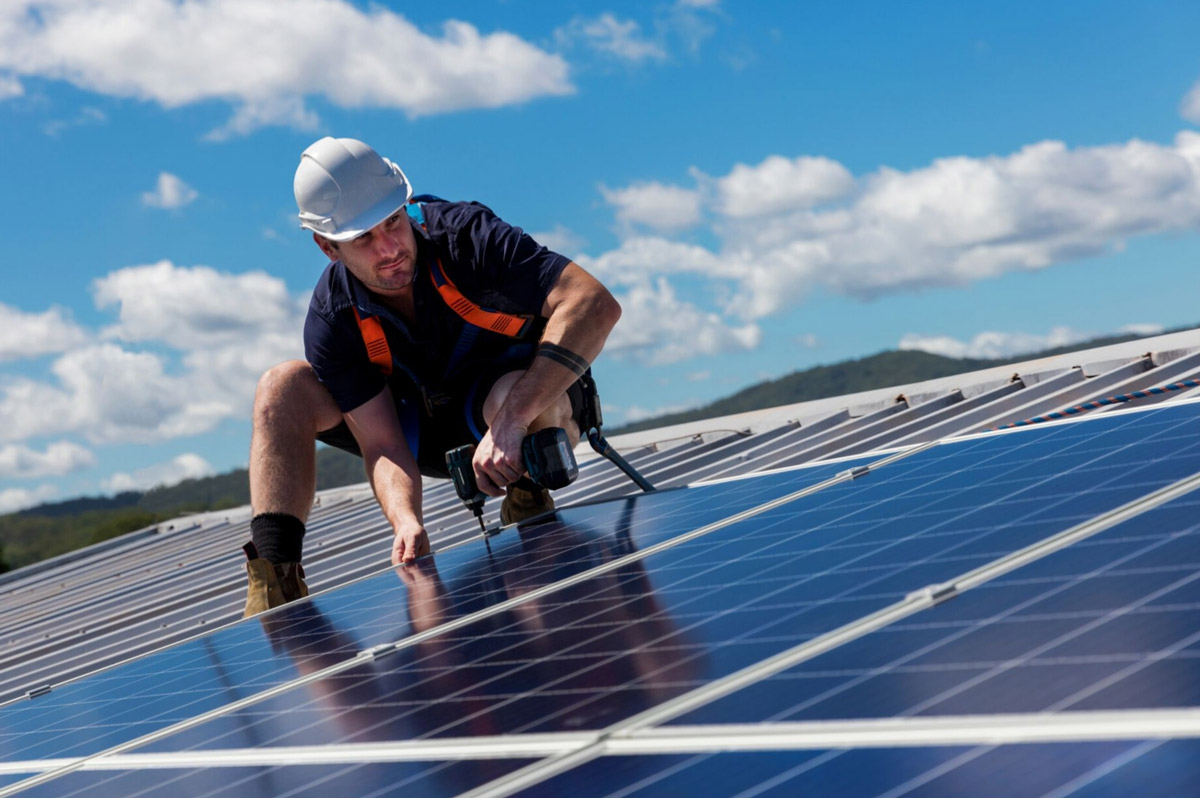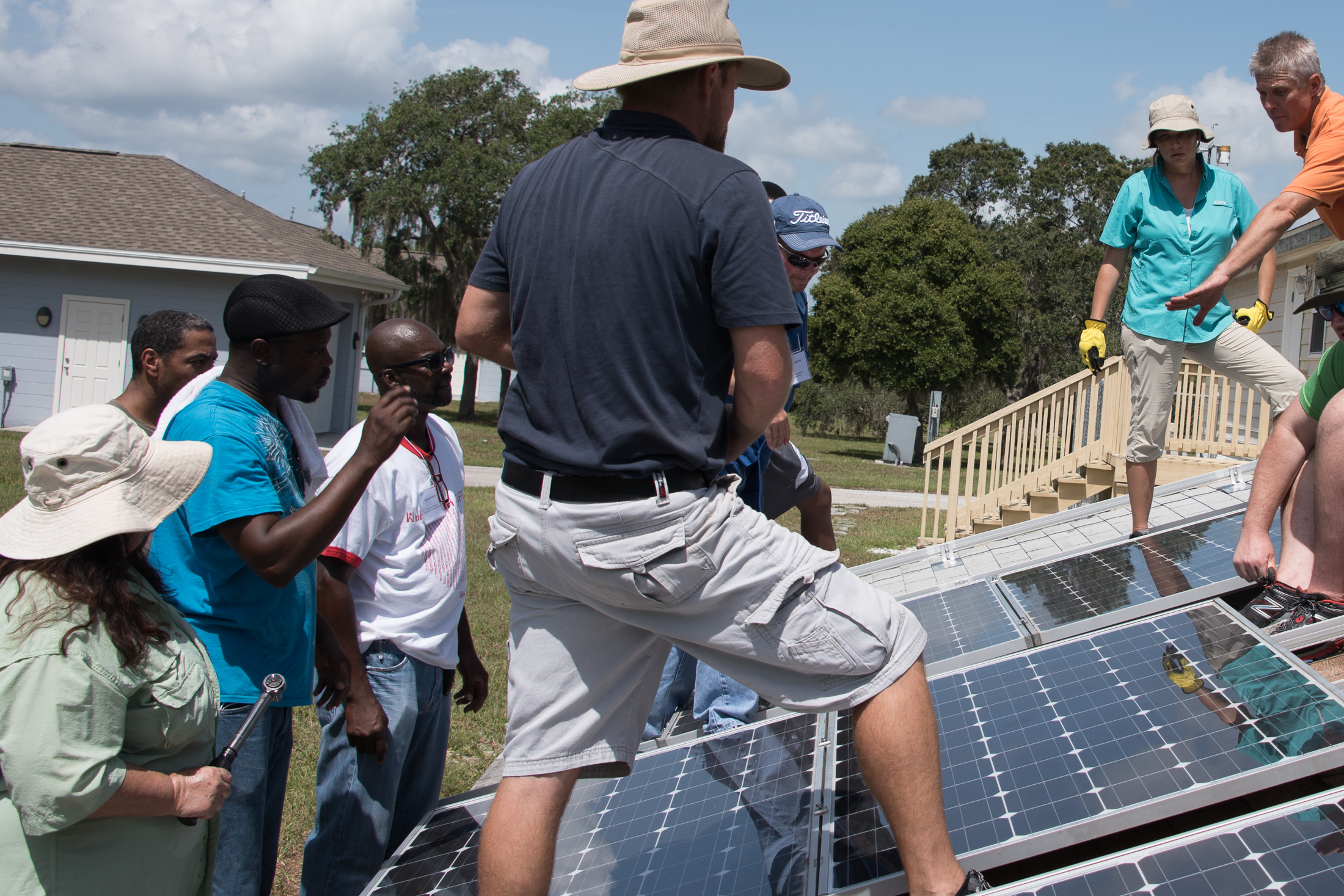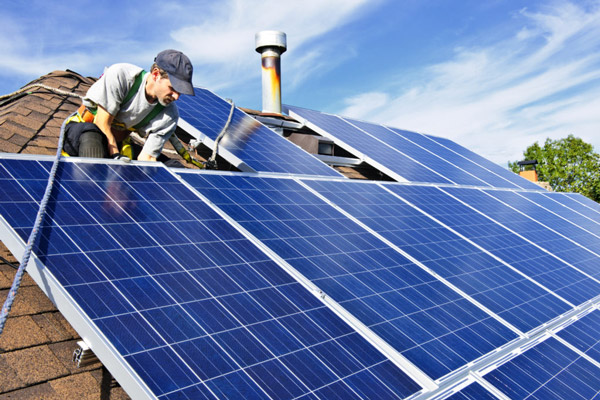
If you're considering a career in the solar trade in Homosassa Springs, FL, 2025 offers promising opportunities amidst a rapidly expanding renewable energy sector. The U.S. solar energy industry is projected to see a 35% increase in utility-scale capacity by the end of 2025, reaching 230.2 GW 1, a growth trend that's positively impacting Florida’s energy landscape. Homosassa Springs and the broader Citrus County area currently show approximately 17 solar jobs available on Indeed 2, with nearly 90 electrical jobs posted in the immediate area 3, some of which provide pathways into solar installation and maintenance. Earnings for solar installers in Florida average $22.46/hour 1, while more experienced solar technicians earn an average of $49,680/year 4. Beyond technical roles, careers in solar sales and consulting are also emerging in the region. To help you navigate this growing industry, we’ll walk through everything you need to know—from the exact steps to become certified to salary expectations and the job market outlook in 2025.

Solar trade careers encompass a wide range of roles, from solar installers who physically mount panels on rooftops or ground-mounted systems to solar technicians who handle the electrical components and system performance assessments. The solar trade also extends to project management, where professionals oversee timelines for large utility-scale projects, and consulting or sales, which connect homeowners and businesses with their ideal solar solutions.
In the Homosassa Springs area, solar professionals can expect varied job opportunities that span both residential and commercial sectors. While there are only about 17 direct solar job postings in Citrus County right now 2, the broader "energy" sector in the region has over 200 job listings 5. Many of these broader energy jobs involve electrical work that aligns closely with solar trade practices. In fact, there are nearly 90 electrical jobs currently posted in the Homosassa area 3, some of which can lead into solar installation and maintenance work.

Yes! To install solar systems professionally in Florida, specific licensing and certification requirements must be met 6. Whether you're looking to become a solar installer, electrician with solar specialization, or a general contractor, obtaining the appropriate certification is essential to legitimize your skills and open doors to employment opportunities.
Here are the key licenses you’ll need to work in solar trade careers in Florida:
| License Type | Issuing Authority | Requirements |
|---|---|---|
| Certified Solar Contractor License (CVC) | Florida Department of Business and Professional Regulation | Pass the Solar PV trade exam & Business & Financial Management exam 1 |
| Certified Electrical Contractor License (EC) | Florida Department of Business and Professional Regulation | Required for electrical solar installation + Solar PV trade exam 1 |
It’s worth noting that while Florida doesn’t mandate the NABCEP PV Installation Professional certification 7, possessing such a credential significantly boosts your credibility and employability. Moreover, local building departments will likely require electrical permits for solar installations 7, which licensed individuals can more easily obtain.
If you want to learn more about solar license requirements or start your application process, visit the Florida Department of Business and Professional Regulation (DBPR)’s online licensing system 8, which simplifies the credentialing process. You can also begin your search for license-assisting programs through resources like Gild, which often curates programs tailored to local workforce needs 5.
The timeline for entering the solar trade typically hinges on completing the following certification and education milestones:
If you’re eager to shortcut this process (or boost your employability), completing specialized solar installation courses or technical certificate programs can provide a fast-track learning alternative and potentially count toward field experience in apprenticeships 6.
To find an apprenticeship or relevant training program tailored to your goals, explore what's available through platforms like Gild 5, which streamlines access to high-quality apprenticeship opportunities in areas of interest like solar installation, electrical work, and solar maintenance.
If you're ready to take the plunge and join the solar trade, here's how to begin:
To enter the field, ensure that you:
Pro Tip: Prior experience in construction or related disciplines can be a huge advantage.
Before—or as part of—an apprenticeship, many aspiring solar professionals choose to enroll in a solar energy program at technical schools or community colleges in Florida to build foundational knowledge of solar systems and electrical requirements.
One great way to start searching for training or courses is through Gild, which aggregates programs and job leads tailored to individuals looking to work in renewable energy 5. Specialized classes can give you the tools you need to secure apprenticeships or directly pursue entry-level roles in the solar trade.
Apprenticeships are pivotal experiences that equip you with on-the-job skills directly applicable to the field. Florida solar apprenticeships typically last 4–5 years, combining construction experience with classroom instruction. As part of your apprenticeship, you’ll work under seasoned professionals who help you master everything from system installation to troubleshooting 6. Many apprenticeships allow you to learn critical skills like roof safety, wiring for photovoltaic systems, and day-to-day problem-solving during installations.
To apply, check out current programs through Gild or research programs at the state or local union levels. Building relationships with landscape professionals, electricians, or construction companies is another way to find apprenticeship leads.
Fun Fact: Apprenticeships are paid opportunities, offering both financial stability during your training and hands-on experience for your resume.
Once you’ve punctually completed your apprenticeship (typically after 4–5 years 6), you can apply for licensure. Florida offers two license types: the Certified Solar Contractor License (CVC) and the Certified Electrical Contractor License (EC).
If you're pursuing specializations or believing that your career goals exceed entry-level requirements, consider obtaining advanced certifications such as the NABCEP PV Installation Professional certification 7. Though not mandatory, NABCEP certificates demonstrate expertise in a highly competitive industry—a win for both employers and your résumé.
Armed with experience, licenses, and certifications, you’ll be in a strong position to either land a well-paying job or launch your own solar contracting business as a Master Contractor.
There are currently about 17 open solar positions in Citrus County 2, and more opportunities are sure to emerge as the sector scales locally and statewide.
Earning potential in Homosassa Springs isn’t as clear from data specific to the region, but statewide and regional trends in Florida can offer a solid benchmark. In Florida, the average hourly wage for a solar installer is $22.46, translating to an approximate annual income of $46,712 before overtime 1. Those in more advanced roles or with specific expertise can earn significantly more—experienced solar professionals in Florida report incomes in the $108,000/year range 6.
While salaries in smaller cities like Homosassa Springs may be lower than those in larger metropolitan areas, many professionals take comfort in the comparatively lower cost of living and growing local demand for green energy solutions.
In addition to salaries, working in solar trade jobs means joining a rapidly expanding and environmentally impactful industry. With the federal Inflation Reduction Act 6 extending incentives for solar adopters indefinitely, demand for solar expertise is projected to only grow in the years ahead—making 2025 a prime opportunity to break into the industry.

The solar trade in Florida, and by extension in Homosassa, is growing steadily thanks to policies both within the state and nationally, like the Inflation Reduction Act (IRA), which provides long-term funding for solar technologies 6. Additionally, Citrus County currently boasts the 5-year energy payback period for a 5 kW solar system at a cost of $2.84/W 6, making solar a highly accessible and worthwhile investment for homeowners and businesses alike.
The state of Florida ranks third in installed solar capacity nationwide with 4,729.58 MW in total generation from 2024 1. Coupled with a consistent investment of $6.5 billion in 2024 alone 1, there’s substantial momentum for continued solar job growth. Homosassa Springs can expect to ride this upward wave, potentially seeing increasing demand for solar trade services and roles in the next few years.
Moreover, with utility-scale solar project developers like Moss actively recruiting for regional solar labor and construction opportunities 9, the long-term outlook for solar careers in and around Homosassa is promising.
Solar trade careers are a great fit for hands-on, technical individuals looking to combine practical skills, employer-backed training, and a meaningful impact on their community and the environment. Whether you’re starting fresh or transitioning from a related field, Homosassa Springs in 2025 opens up rewarding prospects for entering a solar trade career that aligns with both your skillset and long-term goals. Explore current opportunities with Gild to begin your journey toward a career in the solar trade in Florida today.
https://seia.org/wp-content/uploads/2025/03/Florida-1.pdf ↩ ↩2 ↩3 ↩4 ↩5 ↩6 ↩7 ↩8 ↩9 ↩10
https://www.indeed.com/q-solar-l-citrus-county,-fl-jobs.html ↩ ↩2 ↩3
https://www.ziprecruiter.com/Jobs/Electrical/-in-Homosassa,FL ↩ ↩2
https://www.chooseenergy.com/solar-energy/solar-energy-production-by-state/ ↩
https://www.indeed.com/q-energy-l-homosassa,-fl-jobs.html ↩ ↩2 ↩3 ↩4 ↩5
https://findenergy.com/fl/citrus-county-solar/ ↩ ↩2 ↩3 ↩4 ↩5 ↩6 ↩7 ↩8 ↩9 ↩10 ↩11
https://seia.org/state-solar-policy/florida-solar/ ↩ ↩2 ↩3 ↩4 ↩5
https://www.ecowatch.com/solar/incentives/fl/sugarmill-woods ↩ ↩2 ↩3

